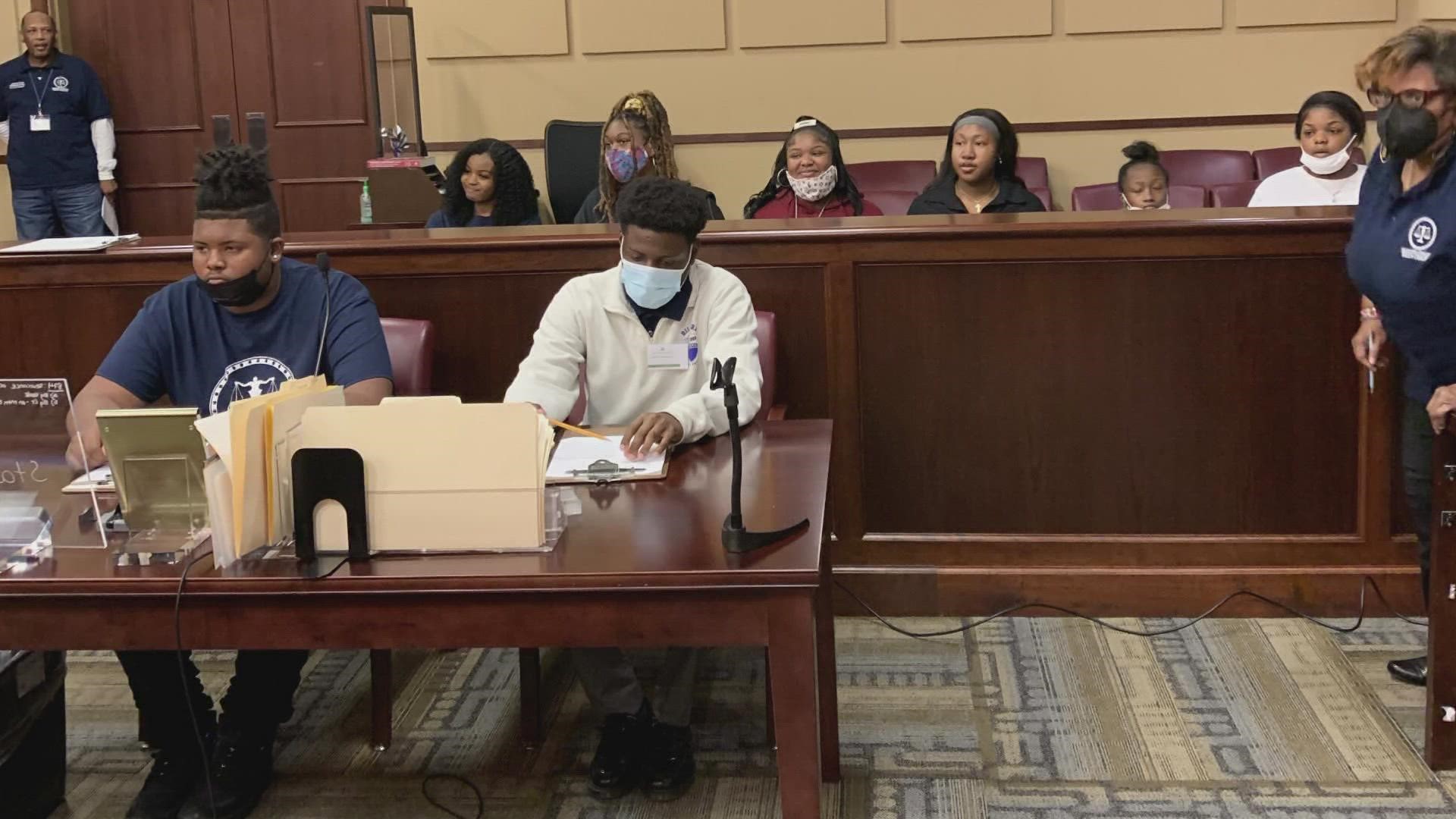NEW ORLEANS — At a time when violent crimes committed by juveniles are up 30 percent, funding for programs to keep them from continuing a life of crime is down.
Now, some who run the court programs believe this could lead to more repeat offenders.
Different sources of funding for the juvenile justice system have been cut since the pandemic and other services that help the youth are in jeopardy.
One of those programs running out of state grant money is teen court.
Offenders of crimes like theft, fighting, criminal trespassing, unauthorized use of a motor vehicle, and first time possession of marijuana, admit to guilt and are tried by a jury of their peers. Teens who are offenders, or just community volunteers, also act as the judge and attorneys.
“What we know is the kids that have participated in teen court program, do not recidivate. We have no kids that have participated in this program that have come back into the program, or have escalated further into juvenile delinquency,” said Ranord Darensburg, Chief Judge of Orleans Juvenile Court.
Victims are in the court during the trial, and sentences of community service, returning stolen goods, apology letters and the like, are binding.
Dr. Clarance Bickham runs teen court. He says he sees offenders and community volunteers become successful members of society.
”The attorneys wrote her letters of recommendation and she went to Loyola Law School and graduated. Now she has her own law firm,” Bickham said.
Add to that, Chief Judge Darensburg says since the pandemic, juvenile court has also had its city funding cut by 20 percent, a total of $540,000. The court's job is to constantly monitor the juveniles who come through the system.
“If we have no resources, or nothing to give the children to do, we're sitting with our hands tied in court sessions, trying to figure out how to keep this kid out of trouble when they leave our courthouse,” Darensburg said.
He worries that a lack of supervision will lead them to committing more crime. It's a missed opportunity to intervene.
“Well, you got to be passionate, because guess what? These are our kids, and if we don't do it, who's going to do it? So, we got to be here for our kids,” Bickham said.
“Believe me we're going to be looking for funding to keep this program alive, and well, because it keeps children out of the system,” Darensburg said.
Studies show that 60 percent of the children who go through the juvenile justice system across the nation have some type of diagnosable mental illness.
In other parishes around New Orleans, there are ways to assess that, but in Orleans Parish, there’s not enough funding to have that same program.
The city disagrees with the amount cut from the court’s overall budget given by Judge Darensburg, telling us the total cuts amount to $360,000.
They said that funding could be restored during the mid-year adjustment process.
► Get breaking news from your neighborhood delivered directly to you by downloading the new FREE WWL-TV News app now in the IOS App Store or Google Play.

